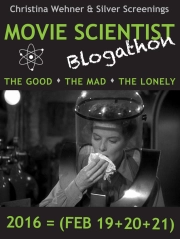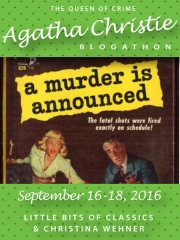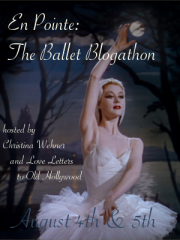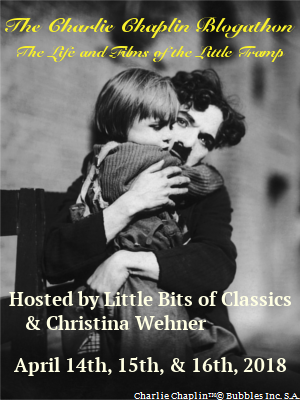 So, I’ve always liked to kick around the idea of what a Lord of the Rings would have looked like if a studio like Warner Bros. had dedicated all their resources (and perhaps resources of other studios) to making a version during the height of the studio era, discounting the fact that J.R.R. Tolkien’s epic fantasy was not published until the 1950s. Admittedly, I have not solved all considerations. How would they have portrayed orcs? What about Gollum? And the hobbits? The technology was not there, but it is still fun to speculate.
So, I’ve always liked to kick around the idea of what a Lord of the Rings would have looked like if a studio like Warner Bros. had dedicated all their resources (and perhaps resources of other studios) to making a version during the height of the studio era, discounting the fact that J.R.R. Tolkien’s epic fantasy was not published until the 1950s. Admittedly, I have not solved all considerations. How would they have portrayed orcs? What about Gollum? And the hobbits? The technology was not there, but it is still fun to speculate.
I have also still not solved all casting conundrums and would like to invite other opinions! Since studio productions of the 1930s and ’40s were always the product of multiple voices and opinions, it seems appropriate.
But rather than present a comprehensive rubric, I would like to offer thoughts for consideration. Actors, composer, make-up artist, production code considerations.
Cast
I don’t think there is any doubt that Warner Bros. would have cast their leading male star as Aragorn: Errol Flynn.
When I taught a class to high school students on the early history of American cinema, I was told that Errol Flynn in The Adventures of Robin Hood looked like Link. I always thought of Link as an elf, so perhaps Errol Flynn would have made a better Legolas, who is far merrier in the book than he is in the movies, but there is no way Warner Bros. would have given him anything less than the all-important role of the king.
I’m also inclined to think that any studio era production of LOTR would, like the Peter Jackson films, have given Arwen a bigger role. With that in mind, it seems fitting that Arwen should be played by none other than Olivia de Havilland, who would have been an excellent elf.
For Gandalf, I’m partial to the casting of Claude Rains. He’s brilliant in almost anything, but as Gandalf, he would have brought a wry wit and wisdom – and a lovely voice – that would have been ideal, especially since Gandalf has to carry the heavy lifting of cinematic plot exposition.
Alan Hale might possibly have been cast as Gimli, though the Gimli of the book is far more dignified than in the movies. Though I’m also tickled by the idea of casting Edward G. Robinson, as well. And Patric Knowles for Legolas, perhaps?
 Boris Karloff as the Witch King, hands down. And for the important role of Eowyn, quite possibly Bette Davis. I could see her riding her horse, taking on Boris Karloff and raging against being trapped in a cage. And falling in love with Errol Flynn.
Boris Karloff as the Witch King, hands down. And for the important role of Eowyn, quite possibly Bette Davis. I could see her riding her horse, taking on Boris Karloff and raging against being trapped in a cage. And falling in love with Errol Flynn.
How about Sir Cedric Hardwicke for Saruman? And Vincent Price needs to be in the film somehow. Maybe as Wormtongue? John Garfield was a star and would need a role, but I’m a bit stumped on that one. Any thoughts? Also, if James Cagney can appear in a Shakespeare play as Bottom, then surely he could appear in LOTR as somebody…even a hobbit! Okay, so maybe not.
Lionel Atwill should also undoubtedly have a role…perhaps as Elrond. We need a Galadriel, too. Hmm…
Basil Rathbone likewise deserves a role, possibly even a heroic role. Like Boromir or Eomer, though I’m leaning towards Boromir. It strikes me, though, that he could have played the stern Strider who morphs into a king, but it’s doubtful he would have been given the part.
Score
Max Steiner was Warner Bros. most prolific composer of the era and scored over 300 film scores, which boggles the mind. He scored King Kong, Gone With the Wind, Casablanca, The Treasure of the Sierra Madre, The Big Sleep, and The Searchers. He clearly had the epic score down pat.
Costuming and Makeup
In all probability, Warner Bros. would need the experience of Universal Studio’s Jack Pierce, who designed the make-up for Boris Karloff’s Frankenstein monster and Lon Chaney Jr’s Wolf Man. This reminds me that Lon Chaney Jr. should surely have a role in the film, as well. Maybe he could play an orc leader or Uruk-hai? Or Gollum. He actually might be the best bet for Gollum and would certainly bring pathos to the role. Though Bela Lugosi could handle Gollum, as well.
Studio era Hollywood didn’t have a track record with fantasy, so it’s possible that a Lord of the Rings would look more like a medieval horror movie. And actually, we can learn a lot about how a studio era LOTR might have been handled by examining Universal Studios films. The make-up in The Wolf Man was designed not too look realistic. There was concern that it would be too frightening, which means that in all probability the makeup for the orcs would have been muted.
The costumes (or at least the gowns) could be designed by Vera West, who specialized in costuming for Universal’s horror movies: The Bride of Frankenstein, The Wolf Man, various Mummy movies, Dracula. But Walter Plunkett also designed a lot of period garb, most notably for Gone With the Wind, but also The Hunchback of Notre Dame, The Three Musketeers, and Singin in the Rain. Perhaps they could design together.
I suspect that for the monsters – like the Balrog – Warner Bros, would also have need the assistance of stop motion animator Willis O’Brien, of King Kong fame.
Direction
Probably Michael Curtiz. He established his bone fides for epics and large crowds with the 1928 silent/talkie hybrid Noah’s Ark. He also directed many of Errol Flynn’s best films, including The Adventures of Robin Hood.
Motion Picture Production Code
On the whole, I think there is not much in LOTR that the Breen Office would have objected to, except excessive violence and gruesomeness. The gruesomeness in particular would have been in relation to the orcs and Uruk-hai. This means the battle scenes, along with the makeup, would have been far less intense, less bloody, more on the line of the battle at the end of The Adventures of Robin Hood. With Universal Horror monsters as the villains.
An adventure/horror film! Which means the movie might end up more lighthearted, more in the spirit of The Hobbit. Though it might depend on whether they took horror or adventure as their model.
What do you think?
This has been my contribution to “the Great Breening Blogathon,” hosted by Pure Entertainment Preservation Society. For more posts on this topic, be sure to check out their site, here.





















